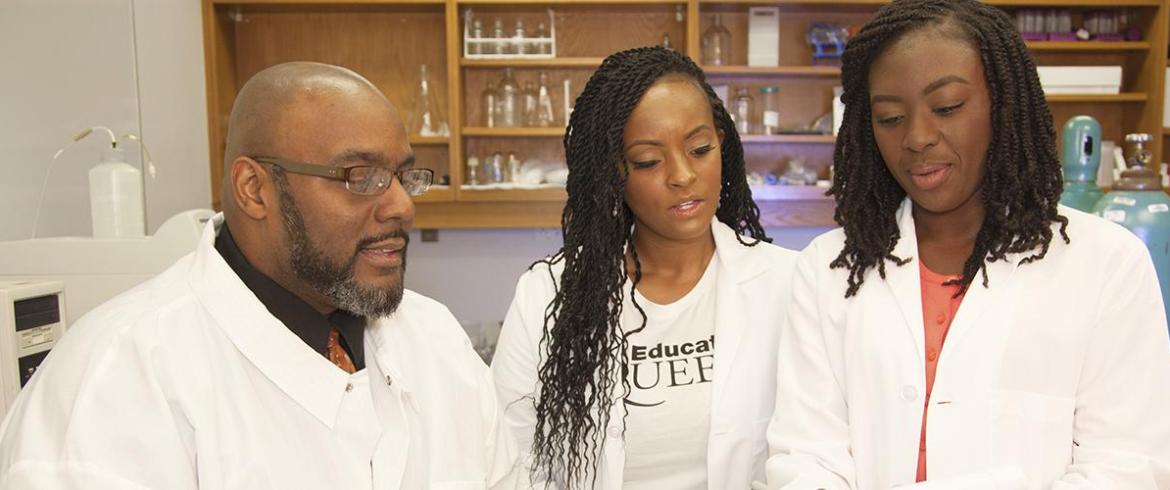
A FAMU-FSU College of Engineering professor recently received a Graduate Assistance in Areas of National Need (GAANN) grant from the Department of Education in the amount of $1.5 million dollars to identify and nurture minority students pursuing a graduate education in engineering. Clayton Clark II, Ph.D., a professor of civil and environmental engineering procured the grant that is partially funded by Florida A&M University. He is the administrator and principal investigator for the award. David Jackson, the dean of the FAMU school of Graduate Studies and Research is working with Clark to provide tuition waivers and funding matched by the federal government.
The grant provides fellowships for eight students who show a financial need and qualify with a good GPA and academic standing. The money goes directly to the students in the form of tuition and stipend, with an aim to allow students to focus on their education, so they won’t have to take outside jobs that pull them away from their studies.
“When I was a graduate student, the statistic was 70 percent of the students who start a Ph.D. don’t finish,” Clark explains. “I love seeing students have opportunities to do research and not have that financial worry that derails a large number of graduate students.”
This GAANN award focuses on civil engineering because of the various concerns that face the United States in the 21st Century. Deteriorating infrastructure, clean water, energy, air and soil as well as a growing population have created the need to intensify high-quality post-secondary training for professionals and researchers in civil and environmental engineering.
To meet this heightened national need, the FAMU-FSU Engineering Department of Civil and Environmental Engineering is in a position to assume an assertive leadership role in recruitment, retention and graduation of underresourced Ph.D. students. Clark and his colleagues will mentor these eight GAANN fellows to ensure their Ph.D. completion within five years.
“FAMU has a large, untapped reservoir of superior and talented students who can be trained in this field,” Clark says. “The GAANN program can play a critical role in attracting and encouraging students with exceptional ability to pursue and complete their Ph.D.s to help meet this serious national need.”
